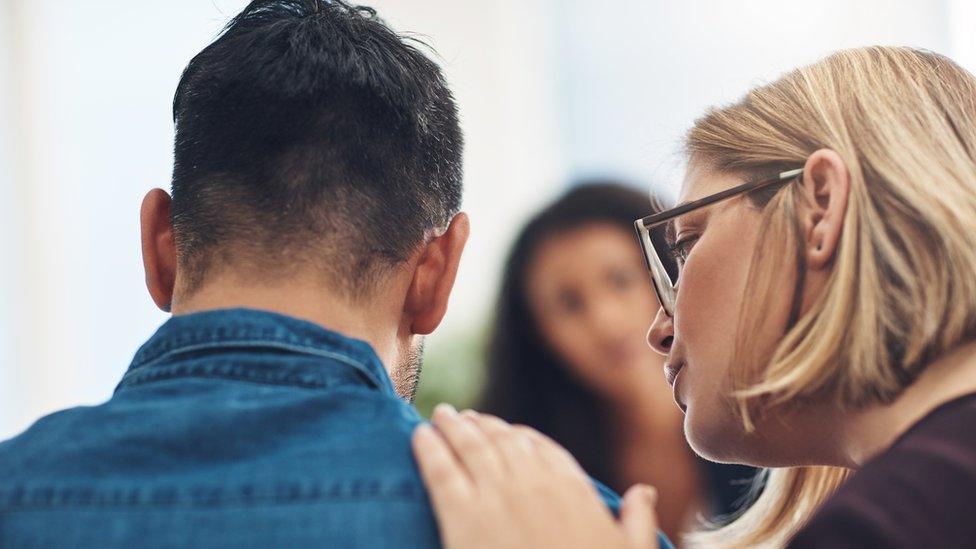Bristol University students tell of mental health experiences
- Published
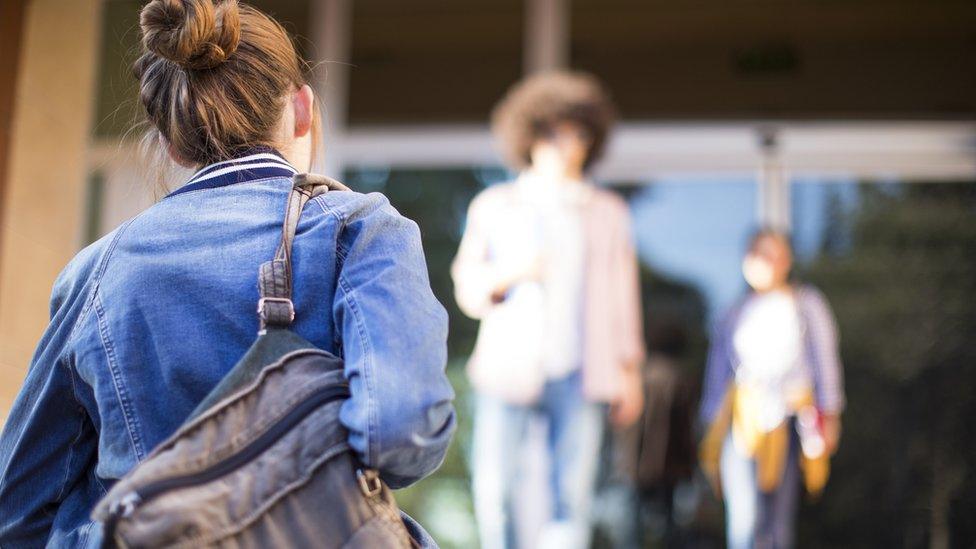
Starting university can mean pressure to become close friends quickly with complete strangers
Student mental health has been the focus of many stories and conversations around the University of Bristol in the wake of 11 students taking their own life there since 2016.
BBC analysis suggests the number of students seeking mental health support while at universities across the UK has increased by more than 50% in five years.
But in Bristol the number of students seeking help has risen by 106% in that five-year period - from 1,375 in 2012-13 to 2,827 in 2016-17.
At the same time the budget for mental health services has doubled to more than £850,000 in 2016-17.
A spokesperson said it had adopted a university-wide approach to identify vulnerable students as early as possible and get them the right support.
Here, three students from the University of Bristol tell us of their experiences.

Sim: Massive pressure to make friends
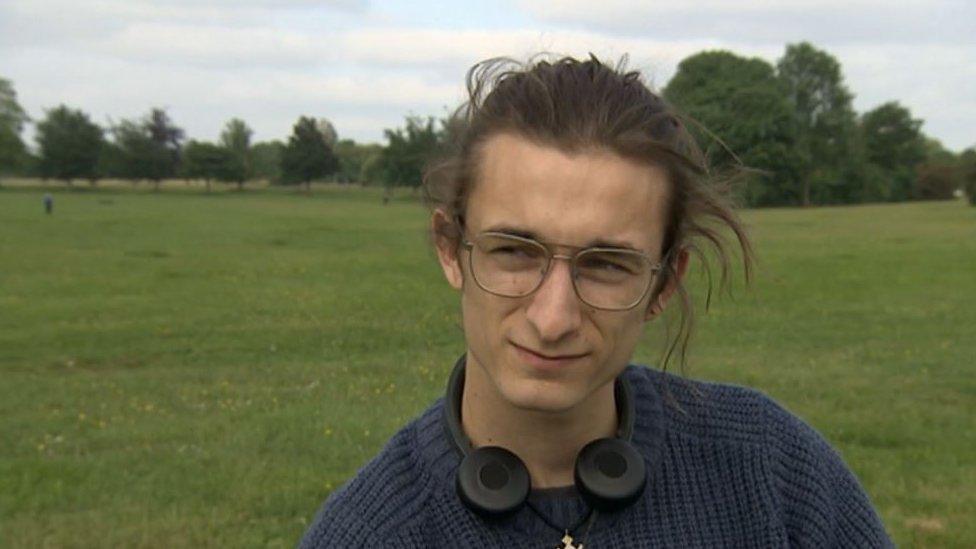
Sim said Freshers' Week brought about a lot of pressure
"In Freshers' Week there's an awful pressure to become incredibly close friends instantly with people you've never met and don't necessarily have very much in common with," Sim said.
"That's really hard especially when you are trying to get your accommodation sorted so soon in the year, it's a massive pressure.
"I personally didn't engage with the whole freshers thing."
Later in the year, Sim had a overwhelming anxiety attack that lasted a whole day.
"I ended up in [the] Samaritans... massively due to the fact you don't have those connections when you first move in.
"[Not having anyone to talk to] is a first year uni thing, but it's also a guy thing, also toxic masculinity... and a stiff upper lip."
Sim was critical about the city centre halls in Bristol saying they "weren't a great environment, you walk out the door in the city and it's not a community atmosphere".
"There was no community space, it was brand new, there was no bar or agreed social space," he added.
"There was a common room but it was lifeless."

Will: Seeking help was not made easy
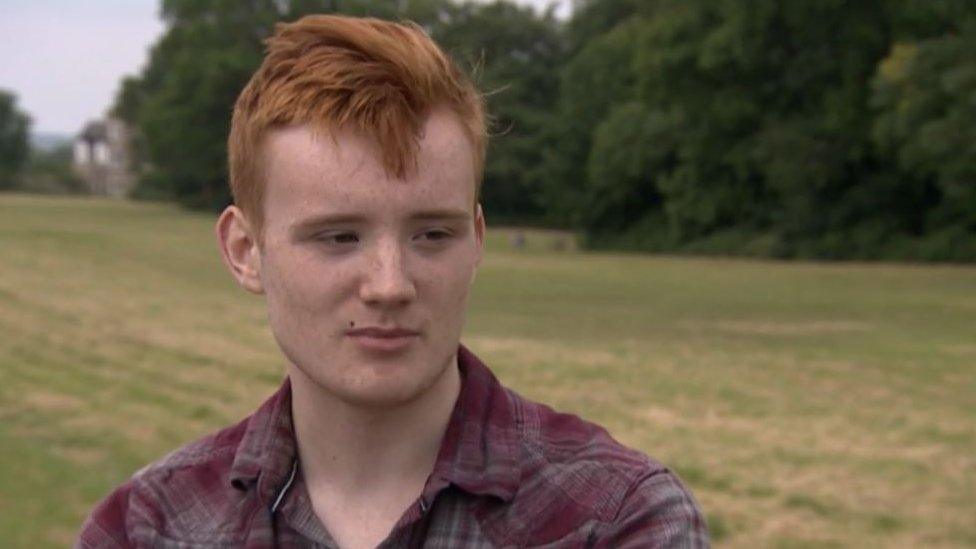
Will said he started positively but found it tough being away
Will had gone to university feeling "quite positive" but found his mental health deteriorated during the first term.
He admitted things had been tough, being away from his family, and because he had not immediately "found his feet" by joining societies and making friends.
Will said the idea of seeking help with mental health issues was not easy.
"On the university mental health counselling website there is a form you fill out that ranks your answers from not at all to very likely - there are a lot of very triggering questions.
"[But it] felt like almost immediately you opened it there's less of a chance you are going to get in because there will be people filling it in as 'likely' for every single thing."
Two months after completing the form he was emailed to say he had not been accepted for one-on-one counselling.
"I'm feeling better now but was definitely in a worse place after the experience of not getting help," he said.
"It's something the uni needs to focus on... and make more personal."

Elodie: Could I have done anything differently?
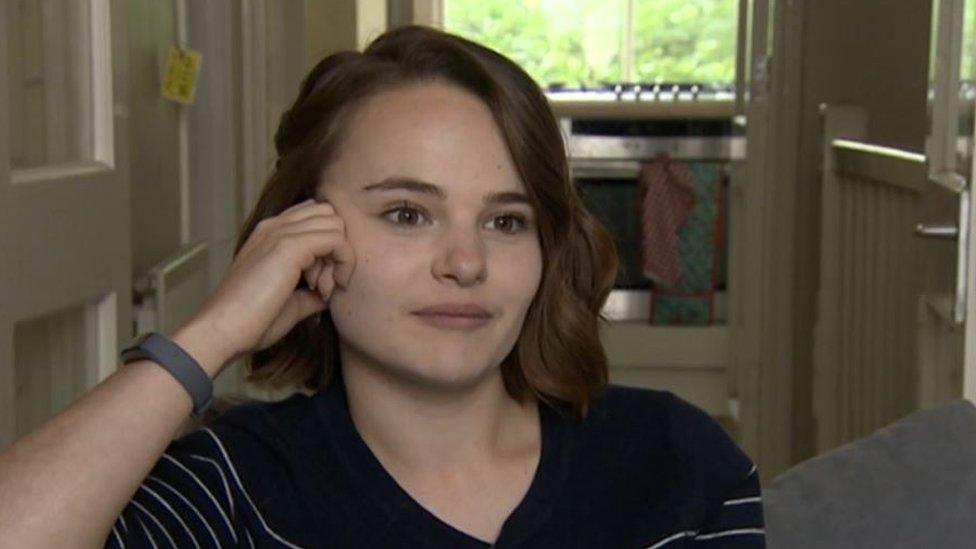
Elodie had to deal with a student who took their own life
Elodie is now studying for a masters in the psychology of education and was previously a senior resident in halls - a first port of call for students with problems out of hours.
"Students came to me with a massively broad range of things - anything from 'where's the nearest supermarket?' to suicidal thoughts and mental health issues.
"If there was a call in the middle of the night and it was someone really distressed, that was hard but I was always pleased there was somebody that could be there for them."
But, in her first year, she had to deal with a fellow student taking their own life.
"I learnt a lot from the situation and provided a lot of support to a lot of people who were struggling.
"For me personally it was really difficult, it's about the worst thing that could possibly happen if you're looking after a group of people.
"You do have questions over time. Could I have done anything differently? Or was it just unlucky? Maybe I could have done something different, but when someone has taken their own life anyone would ask those questions.
"I had a lot of support from the university when that happened... there was something quite amazing that everyone came together.
"But it was hard and I did to an extent feel responsible and that was awful, really awful."

For information and advice on any of the issues raised in this story, contact:
Papyrus, external on 0800 068 4141, or text 0778 620 9697 or email pat@papyrus-uk.org
Samaritans, external on 116 123 or email jo@samaritans.org
YoungMinds Parents' Helpline, external 0808 802 5544
- Published29 October 2018
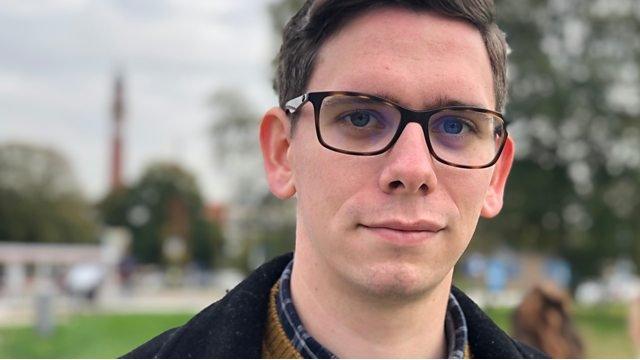
- Published29 October 2018
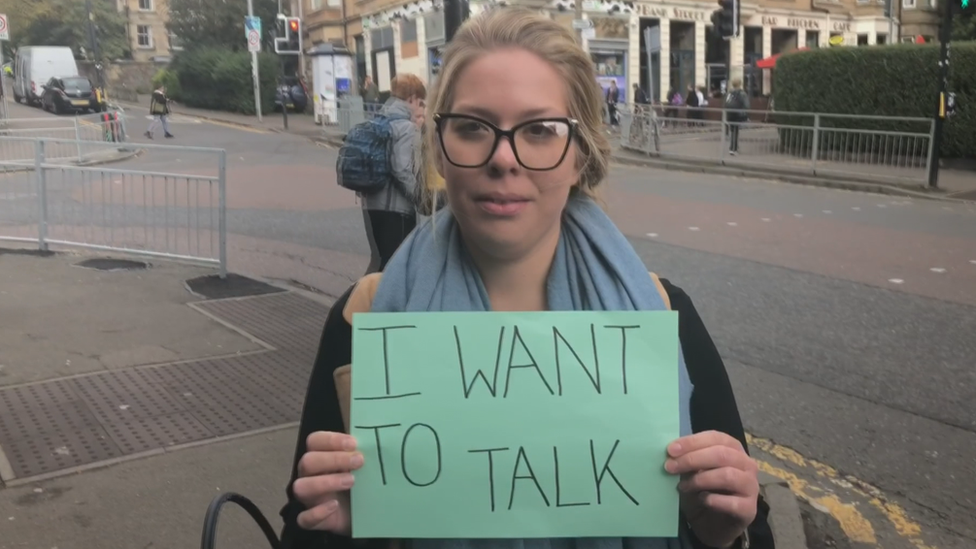
- Published25 June 2018
